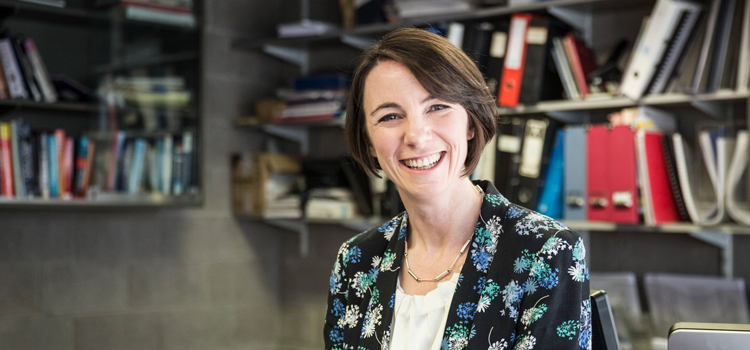News and Events
- SBFE research fellow Xiaohui Lin receives the MSCA DOROTHY COFUND award
- Upskill with UCD’s engineering micro-credentials
- Minister O’Donovan announces funding boost for early career researchers
- Recent Lab visit by UCD Engineering & Architecture to Sheffield University Diamond Centre
- UCD Stormwater Runoff Research featured in Nicola Haines Team
- Madeleine Lowery among UCD Researchers recognised in SFI Frontiers for the Future Awards
- UCD’s LaNua Medical Wins Big Ideas Award at Enterprise Ireland’s Start-Up Day 2024
- Robotics Competition
- Congratulations to All the Winners of this years NovaUCD Awards
- Irish National Doctoral Research Cohort on Floating Offshore Wind Dynamic Cables is formed
- UCD and Northeastern University extend and deepen long-standing partnership with five collaborative research projects
- EPA announces €14.3M in new research funding
- Arup Scholarship Awards 2024
- UCD names new Vice-President for Equality, Diversity and Inclusion
- Project promoting safe staffing in the healthcare system wins UCD Research Impact Competition
- VOICE Project Launches to Shape Tomorrow's Sustainability
- 2023 News Archive
- 2022 News Archive
- 2021 News Archive
- 2020 News Archive
- 2019 News Archive
- 2018 News Archive
- 2017 News Archive
- Accelerate your career with UCD’s Master of Engineering Management
- Irish Academy of Engineering Parsons Medal Winner
- Professor Da-Wen Sun Elected as a Foreign Member of PAN
- PolliNation Takes Top Spot at Sustainability LaunchPad Awards 2017
- Dr Edmond Harty awarded prestigious 2017 Parsons Medal
- Intel continues its commitment to Women in Technology
- 2017 NUI Awards names two UCD Engineering Students
- Professor Da-Wen Sun named as Highly Cited Researcher in the 3rd Year
- Prof John Kelly awarded ESB Outstanding Contribution to Engineering
- UCD Engineering PhD student chosen as Climate Change Ambassador
- UCD Engineer named as IT & Tech Professional of the Year 2017
- Barry Brophy Interview on Tubridy Show with Dave Fanning
- Constructed wetlands: from waste to oasis
- Giant fat blobs, known as fatbergs, are the scourge of London's aging
- How can we make cities better places to live, asks new UCD centre
- The Inchicore Model School: a 21st-century design on education
- Electric-field boost to water flow in protein
- How much traffic can this bridge safely take?
- Technology for all: towards truly inclusive design
- UCD PhD student, Eduardo Morais wins award at conference
- Energy-saving UCD technology breathes life into wastewater treatment
- A fresh look at freezing foods: new technology to preserve nutrients
- UCD honorary degree for Sir Ciarán Devane
- Maintaining the balance of power – through engineering
- Eco-Plan: Upping the game for green spaces in urban planning
- Engineering a smarter treatment for Parkinson’s disease
- 3D printing to revolutionise medical devices
- Smart science to power the Internet of Things
- Getting up close with chemistry
- Former UCD School of Civil Engineering Professor Debra Laefer release
- UCD PhD candidate wins Royal Academy of Engineering early-stage career
- BOC Gases supports research and development in UCD
- Saudi Aramco Takes Stake in UCD Spin out
- Two UCD academics receive a 2017-2018 Fulbright Irish Award
- Grafton Architects receive Architecture award
- Royal Irish Academy elects UCD academics
- Professor Gerry Byrne receives the Fraunhofer Thaler Award
- Dr Edmond Harty appointed as Adjunct Full Professor
- UCD engineers named among Ten Outstanding Young People in Ireland
- Teaching Awards for College Academic Staff
- ENBIO Secures €650,000 Contract with European Space Agency
- Science Foundation Ireland to Invest in 4 New research centres
- Inclusive design to help people with autism & intellectual disability
- UCD professor takes a close look at the chemistry of water
- UCD Engineers receive Outstanding Young People Award
- iSCAPE - Improving the Smart Control of Air Pollution in Europe
- QS Rankings
- UCD Engineering Student announced as winner of the inaugural Engineers
- Dynamic System Modelling Workshop
- Smart CITIES & ENGINEERING for Sustainable Architecture
- Consultation Event on the National Planning Framework
- Seeking to encourage girls in civil engineering
- UCD SBFE Assoc Professor Featured in Irish Times Article
- Stimulating the brain to treat Parkinson’s disease
- UCD SBFE PhD student elected to CIEEM Irish section committee
- UCD SBFE Lecturer contributes to Irish Times article
- Earth’s water may have been formed in its mantle
- Professor David FitzPatrick awarded 23rd RAMI Silver Medal
- UCD SBFE Assoc Prof Aoife Gowen featured in "Women on Walls" Campaign
- Forbes 30 Under 30 Europe features UCD Engineer Colin Keogh
- 2016 News Archive
- Building the State
- A Centenary Celebration
Engineering a smarter treatment for Parkinson’s disease
Monday, 4 December, 2023

“We are building computer models of electrodes, of brain tissue, of the nerves that convey signals to muscles and of the muscles themselves.”
In the fifth instalment of our researcher case studies we look at Dr Madeleine Lowery of the UCD School of Electrical & Electronic Engineering.
Parkinson’s Disease is a neurodegenerative disease that affects parts of the brain that control the movement of muscles, and can result in the person having ‘shakes’ or tremors and experience difficulty walking and speaking. One treatment for these symptoms is Deep Brain Stimulation (DBS), which implants an electrode into the brain to calm muscle tremors and other motor symptoms.
Professor Madeleine Lowery is using computer models to build a better understanding of how DBS affects brain tissue, how it stimulates the nerves that carry signals to muscles and how it impacts the muscles themselves.
Ultimately the aim is to develop a ‘smart’ Deep Brain Stimulation system that can figure out what the person needs and can automatically deliver the correct level of timely stimulation, thereby reducing symptoms effectively and with longer battery life.
You can find the full text here: Engineering a smarter treatment for Parkinson’s disease